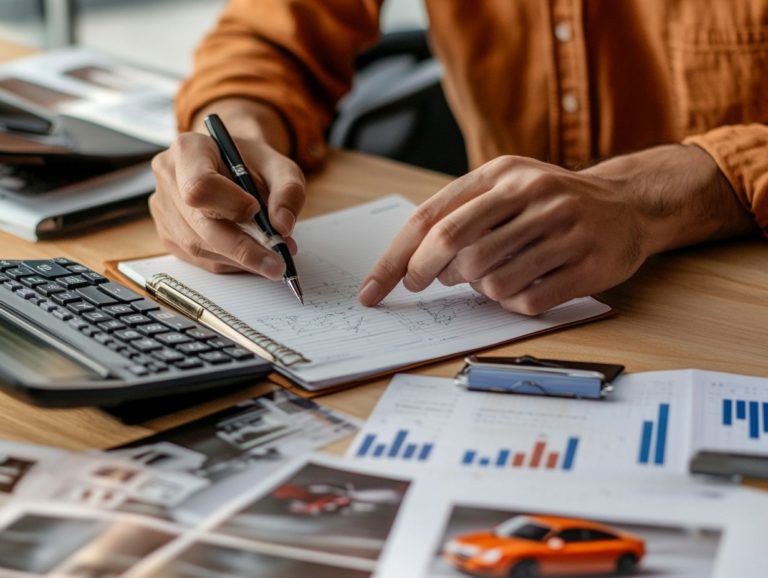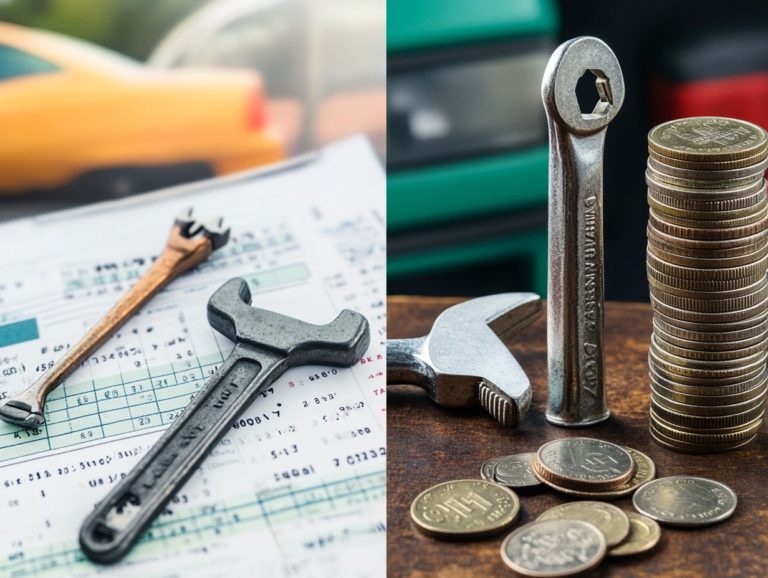Understanding Dealer Holdbacks in Car Sales
When you re shopping for a car, understanding the financial intricacies can truly elevate your buying experience.
This article explains dealer holdbacks. It details how they function and their benefits for both dealerships and customers.
The article also explores strategies to secure a better deal, along with other crucial factors to consider during your car buying journey.
Whether you re a first-time buyer or a seasoned pro, this information will empower you to navigate the dealership landscape with confidence.
Contents
- Key Takeaways:
- What is a Dealer Holdback?
- How Dealer Holdbacks Work
- Benefits of Dealer Holdbacks
- Negotiating with Dealer Holdbacks in Mind
- Other Factors to Consider in Car Sales
- Frequently Asked Questions
- What is a dealer holdback in car sales?
- How is the dealer holdback calculated?
- Do all car manufacturers offer a dealer holdback?
- Can customers benefit from the dealer holdback in car sales?
- Is the dealer holdback the same as a rebate or discount?
- Are there any drawbacks to the dealer holdback system in car sales?
Key Takeaways:
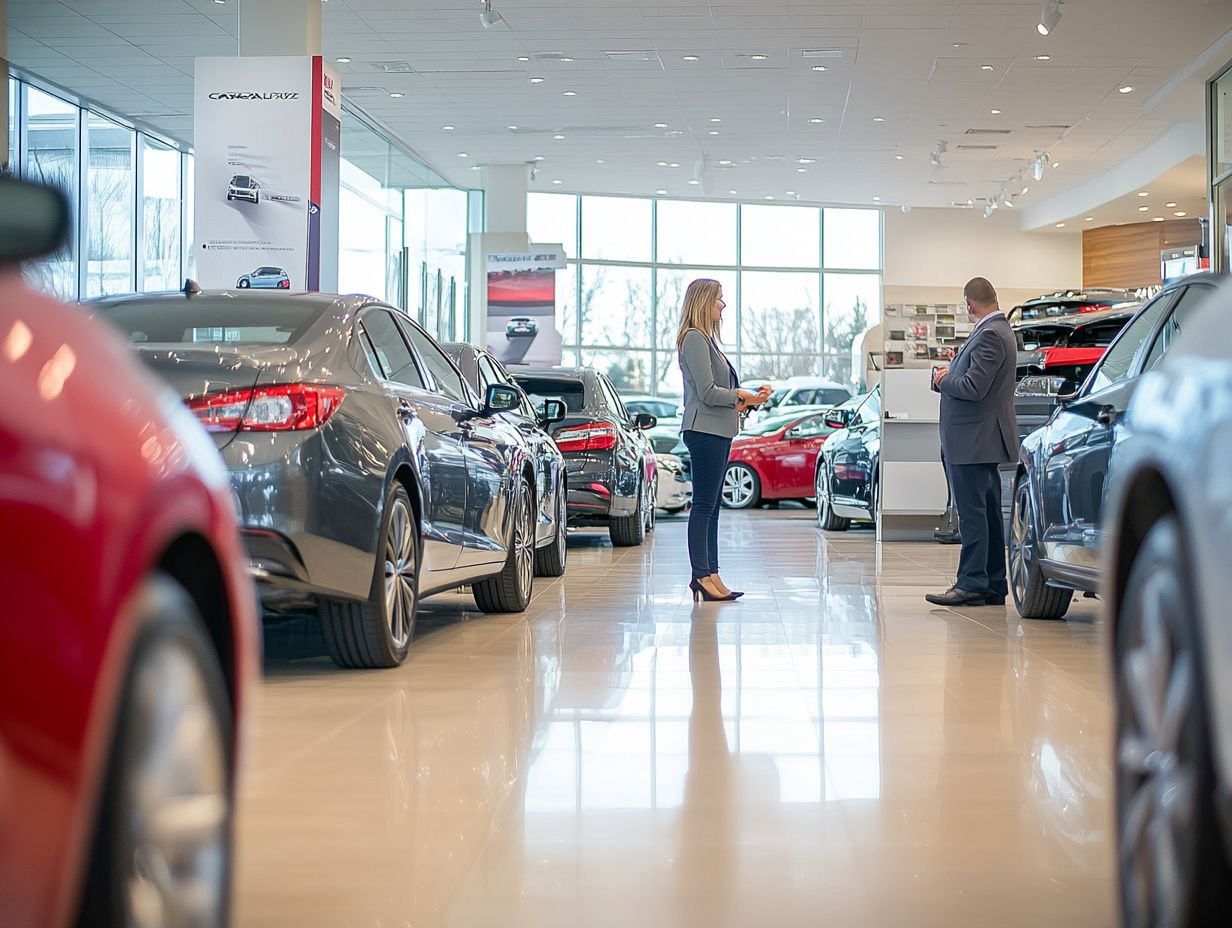
- Understanding dealer holdbacks is essential for both dealerships and customers to make informed decisions during car sales.
- Dealer holdbacks are a set percentage of the car’s invoice price that is paid back to the dealership by the manufacturer, providing a cushion for the dealership.
- Negotiating with knowledge of dealer holdbacks can lead to a better deal for customers and potentially higher profits for dealerships.
What is a Dealer Holdback?
A dealer holdback represents a sophisticated financial strategy used by car manufacturers to incentivize dealerships. It provides dealerships with a percentage of the vehicle’s MSRP (Manufacturer’s Suggested Retail Price), usually assessed quarterly.
Dealerships often keep this amount hidden from consumers. It helps cover business costs, ultimately enhancing profit margins while allowing for competitive pricing within the auto sales arena.
Understanding the intricacies of dealer holdbacks is essential for car buyers and dealerships alike, as it directly influences the final purchase price and the negotiation dynamics during the car buying journey.
Definition and Purpose
The primary purpose of a dealer holdback is to serve as a financial cushion for car dealerships. This enables them to effectively manage business costs and maintain competitiveness in the automotive market.
Holdbacks typically range from 2% to 3% of the vehicle’s invoice price, assisting dealerships in covering costs like salaries and facility expenses while ensuring they have a robust vehicle inventory.
As a car buyer, understanding this idea can significantly enhance your negotiation strategies. It influences the sales commission for dealers, which can affect vehicle pricing. By understanding these financial mechanics, you can position yourself more advantageously during the purchasing process.
How Dealer Holdbacks Work
Dealer holdbacks are a financial tool. They allow dealerships to reclaim a portion of the invoice price of a vehicle post-sale. This recovery mechanism impacts their pricing strategies and sales approaches, allowing them to navigate the market with greater flexibility and insight.
Calculating the Holdback Amount
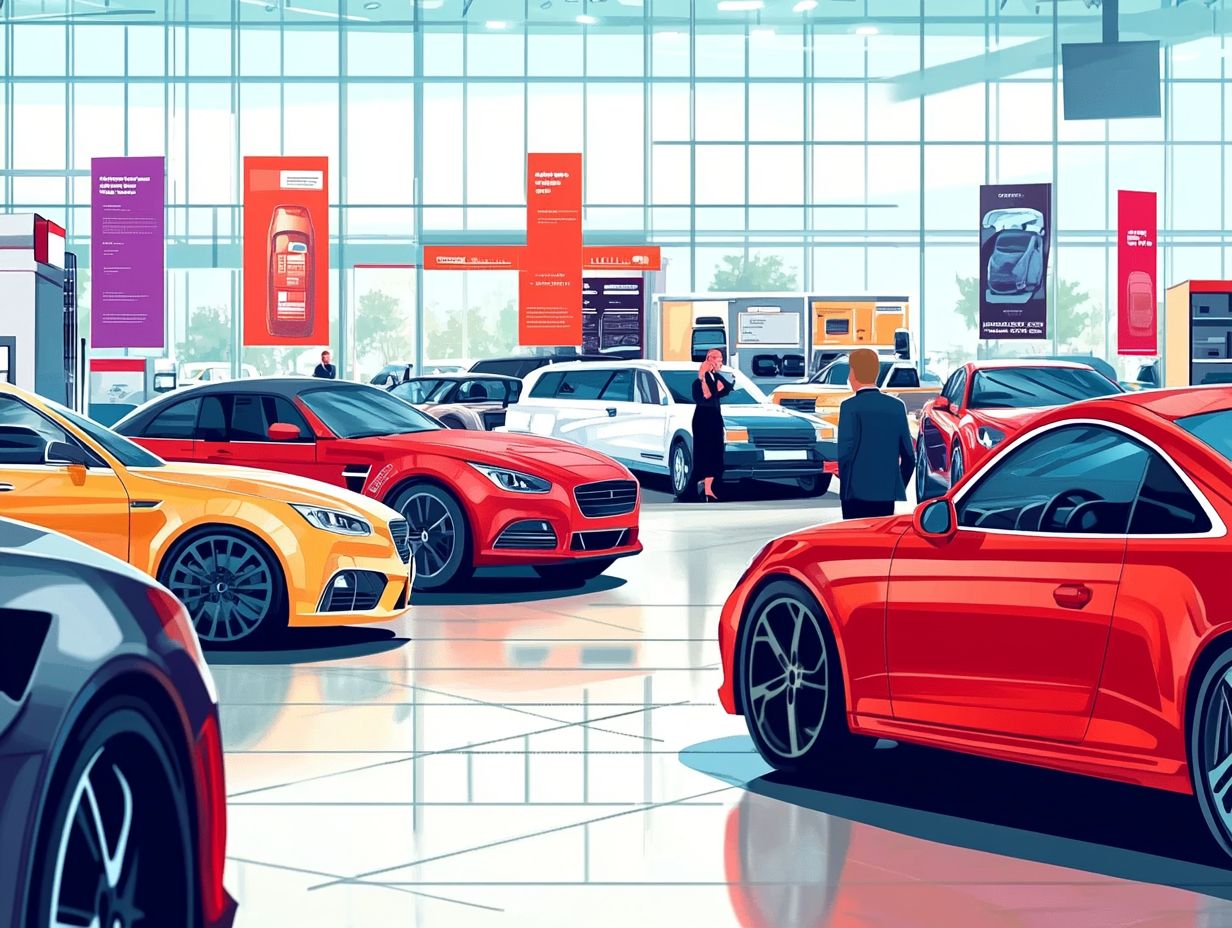
Calculating the holdback amount requires determining the base MSRP and applying the dealership’s specific dealer holdback policy, which generally falls between 2% and 3% of the total MSRP.
It s crucial to consider the dealer invoice, the price the dealership pays to the manufacturer for each vehicle. This figure, along with the total invoice, is instrumental in shaping competitive pricing strategies that can significantly affect profit margins.
Local market demand, inventory levels, and the incentives manufacturers provide also play a role in determining holdback amounts. By understanding these elements, you gain valuable insights into their impact on a dealer’s bottom line and their capacity to present appealing deals to customers.
Benefits of Dealer Holdbacks
The advantages of dealer holdbacks are significant for both dealerships and consumers. They serve as a profit center for dealerships while enabling car buyers to secure more advantageous lease deals and rebates during negotiations.
This creates a win-win situation, making car buying more enjoyable for everyone!
For Dealerships
For dealerships, Dealer Holdbacks are important for your finances. They help cover expenses and improve profit margins, making you more resilient in a competitive market.
These holdbacks are a percentage of the vehicle’s invoice price returned to you by the manufacturer. They provide a crucial buffer against costs related to buying cars before selling them and overhead, allowing you to stay agile as you navigate changing market demands.
Take advantage of manufacturer incentives to refine your sales strategies, attract customers, and maximize profitability. This relationship between holdbacks, incentives, and dealership sales creates a dynamic environment where financial flexibility is key to your success.
For Customers
As a car buyer, understanding Dealer Holdbacks can give you significant advantages. It equips you with negotiation strategies that could lower the purchase price by leveraging insights into hidden kickbacks benefits that dealerships receive from manufacturers that customers might not see.
When you understand how these holdbacks operate, you can approach negotiations with increased confidence and clarity. This knowledge demystifies the pricing structures often used by sales teams, allowing you to pose the right questions and assess the dealership’s margin effectively.
Knowing this can help you negotiate better deals saving you money! With effective negotiation tips and savvy sales tactics, you can assertively land better offers, ensuring you don’t pay more than necessary.
Negotiating with Dealer Holdbacks in Mind
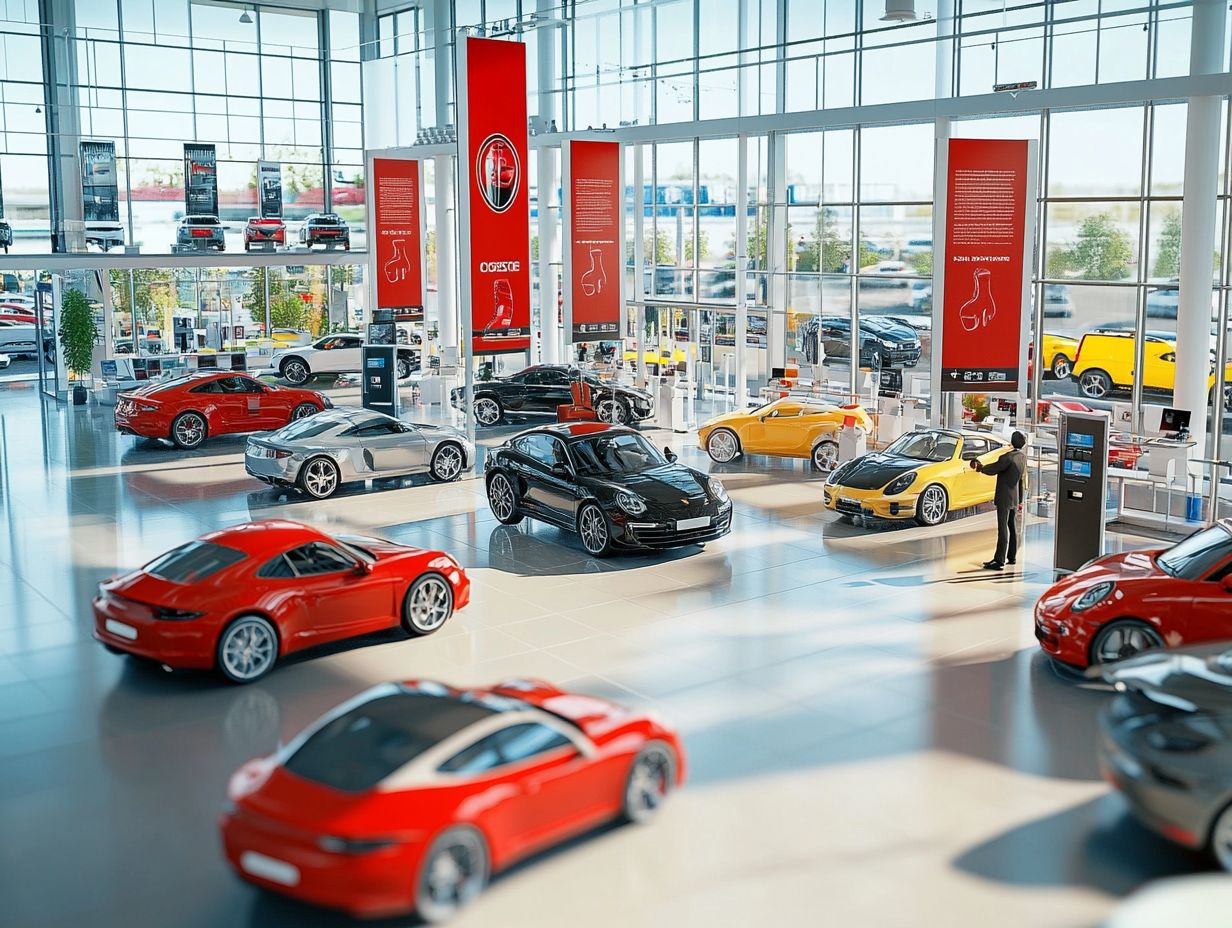
When negotiating with a dealership, understanding Dealer Holdbacks can enhance your strategies. This knowledge enables you to engage with salespeople using informed tactics, potentially leading to a lower final purchase price.
Strategies for Getting a Better Deal
Employing effective negotiation strategies while keeping Dealer Holdback policies in mind can lead to better deals, including securing the best rebates and favorable lease options when purchasing a car.
Understanding dealer holdback policies is essential, as they significantly impact the purchase price you can negotiate. Many consumers miss this detail, assuming the sticker price is final. Recognizing that dealers have a set amount they can receive back from manufacturers allows for more informed discussions.
It s vital to grasp competitive pricing in your area and leverage the sales quotas that dealerships need to meet. This knowledge enables you to advocate for better discounts, ensuring you land a deal that fits your budget and meets your expectations.
Other Factors to Consider in Car Sales
Along with Dealer Holdbacks, several other factors influence car sales. Consider dealership expenses, additional fees, and various manufacturer incentives, all of which significantly impact the overall pricing strategy.
Being aware of these elements will help you navigate the complexities of the automotive market with greater ease.
Additional Fees and Incentives
Additional fees and manufacturer incentives significantly influence vehicle pricing, affecting both the invoice costs and the overall consumer price during your car-buying journey.
Understanding these elements empowers you during negotiations. Beyond that eye-catching sticker price, remain vigilant about potential charges that can quietly inflate the final amount think destination fees, documentation fees, and dealer preparation costs, which can sneak up on you.
Various incentives, like advertising credits from manufacturers, can enhance affordability. Don’t hesitate to ask about the best available rebates, whether in the form of cash discounts or low-interest financing options. This knowledge enhances your leverage, putting you in a stronger position during negotiations.
Frequently Asked Questions

What is a dealer holdback in car sales?
A dealer holdback is the money a car manufacturer gives back to a dealership after selling a vehicle. It’s a way for manufacturers to encourage dealerships to sell more cars.
How is the dealer holdback calculated?
The dealer holdback is usually a percentage of the manufacturer’s invoice price. This price is what the dealership pays for the car and can vary by brand.
Do all car manufacturers offer a dealer holdback?
Most major car manufacturers do have a dealer holdback, but the percentage can vary. It’s best to check the specific make and model you’re interested in.
Can customers benefit from the dealer holdback in car sales?
Some dealerships may pass on part of the dealer holdback savings to customers as discounts. Always ask about their policies regarding dealer holdbacks!
Is the dealer holdback the same as a rebate or discount?
No, a dealer holdback is different from rebates or discounts. Rebates and discounts are usually negotiated separately based on the customer’s situation.
Are there any drawbacks to the dealer holdback system in car sales?
Some experts warn that dealer holdbacks could lead to higher prices for you! Always be aware of this when negotiating your next car purchase.

